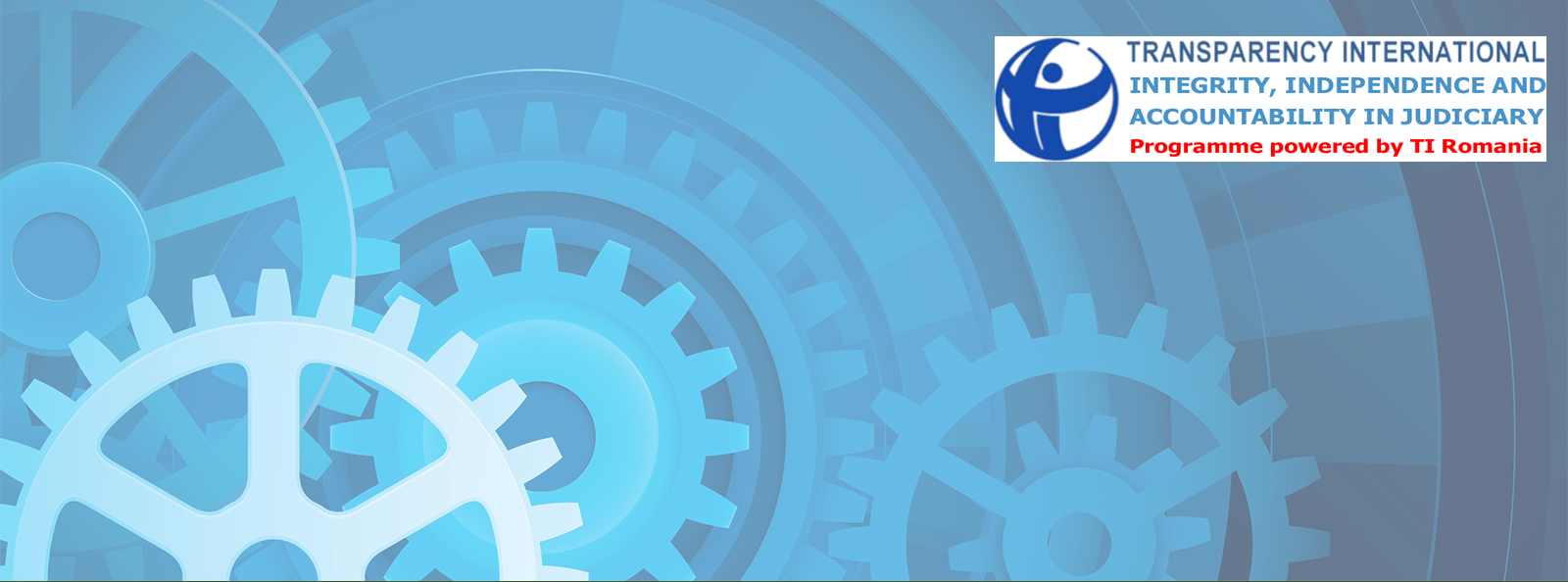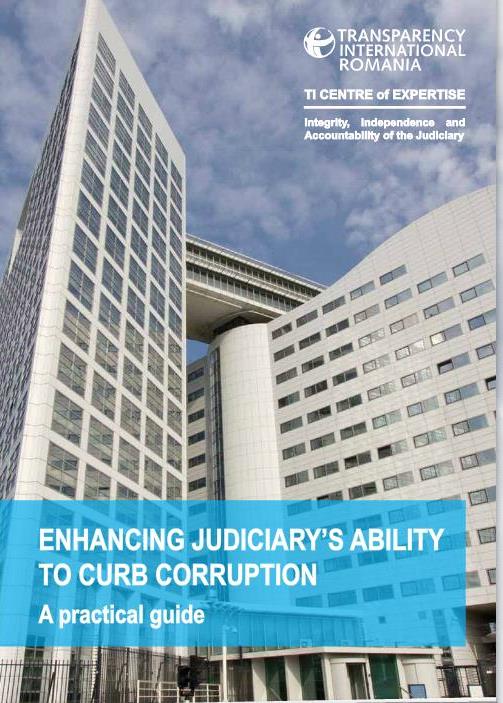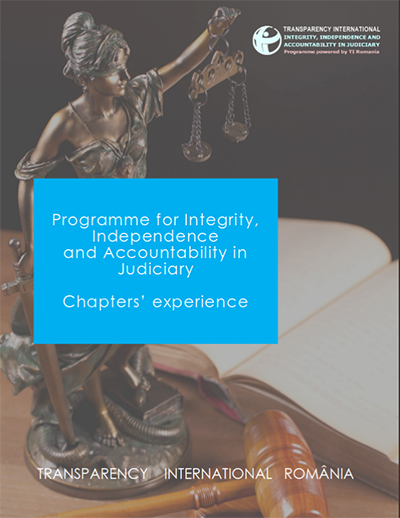
The judiciary is the branch of the state powers tasked with ensuring equal justice through interpreting and applying the law in the name of the state through effective dispute resolution. It includes the judicial branch responsible for administering justice through a system of courts of law and the people who operate within it and who have an active role in the management of corruption cases, namely judges and court officials. In some jurisdictions, prosecution services and people who operate in it, namely prosecutors, judicial police and judicial experts, are also part of the judiciary, whereas, in other jurisdictions the prosecution service is not part of the judiciary but enjoys independence or operational guarantees similar to that of the judicial service.
Standards & Principles for the Judiciary
What's at stake?
To end judicial impunity for corruption crimes, we need to count on a robust judiciary, which is free of corruption itself. The focus, therefore, of our efforts is strengthening the integrity, independence and accountability of the judiciary as a key prerequisite for improving the capacity of criminal justice systems to detect, investigate, adjudicate and sanction corruption crimes in society at large.
As internationally agreed standards and principles already established how judicial systems must be composed and actors in the judicial system must behave in order to act independently, transparently and accountably, we have systematized them into a practical guide to ‘enhancing the judiciary’s capacity to curb corruption’. The guide also brings the already existing TI expertise in the field, to provide governments, judicial actors and advocates with a set of requirements which, if implemented, can ensure the robustness of the judiciary. Moreover, the tool recommends adequate implementation tools.
Principles
requires judicial systems to perform the competencies prescribed by law, following only the laws and procedures emanating from the legislative body, and not from the executive
ensures that neither the legislature, nor the executive or any other outside actor has control or influence over judicial decisions
refers to the independence of judges and prosecutors to make decisions in cases free from interferences or considerations such as personal interests, undue influence from peers or political actors, public pressure, fear of reprisals, concerns about career prospects, political affiliations, bribery or other corruption-related issues
relates to the “behaviors and actions consistent with a set of moral or ethical principles and standards, embraced by individuals as well as institutions that create a barrier to corruption”. It requires judges not to place themselves under any financial or other obligation to individuals or organizations that might influence them in the performance of their duties
requires judges and prosecutors to account for their conduct to appropriate institutions established to maintain judicial standards, which are themselves independent and impartial. The judiciary is also held accountable by the media and public opinion. Judicial officials are not above the law. Judges’ decisions are subject to appeal and accountable to higher courts
laws, regulations, institutional structure, judgments and decisions are available to the public. Parties have the right to a fair and public hearing by a competent, independent and impartial tribunal established by law, and to receive a decision including its reasons, written in an accessible language. Court decision should be pronounced in a public hearing
requires judiciary to observes individual rights, provide victims with adequate remedies, apply proportional sanctions to the guilty, uphold constitutionalism and the rule of law, perform its duties in a timely manner, with professionalism and, ensure the best use of the available resources, ensuring predictability of its decisions and restoring trust in the judiciary
About us
The Centre of Expertise works to strengthen the TI Movements` advocacy capacity on the integrity, independence and accountability of the judiciary and to mobilize people to demand chance by actively calling for an empowered yet accountable judiciary.
Our approach focuses on:
- Developing diagnose tools
- Set up standards and principles for judiciary
- Knowledge management: judicial wiki and helpdesk
- Engage people nationally, regionally and globally
We work closely with our network of national chapters and the Secretariat to diagnose the judicial vulnerabilities, promote standards and principles, catalyse advocacy efforts and generate behavioural and policy changes.
Programme rationale
We will work together with the TI network of national chapters and the Secretariat to:
- Systematize and promote principles and standards on judicial integrity, independence and accountability
- Make new evidence and practical solutions available to strengthen the integrity, independence and accountability of the judiciary
- Create public demand for change through translating technical findings into accessible ones
- Mobilise people to demand change by actively calling for an empowered yet accountable judiciary
- Build judicial anticorruption capacity of the TI movement and key stakeholders
- Effectively advocate for changes in behaviours and policies
Studies and engaging tools
The Guide provides judicial officials and decision-makers with a reference framework for consolidating integrity within the judiciary and for judicial reform, where it is required. It also provides civil society with a set of benchmarks against which they can hold their national judiciaries accountable and that can help drive their advocacy efforts.
Either comprising only judges, or both judges, prosecutors and other officials, judiciary is perceived in most of the countries as the last remedy to inequalities, human rights violations and abuses against the most vulnerable.





